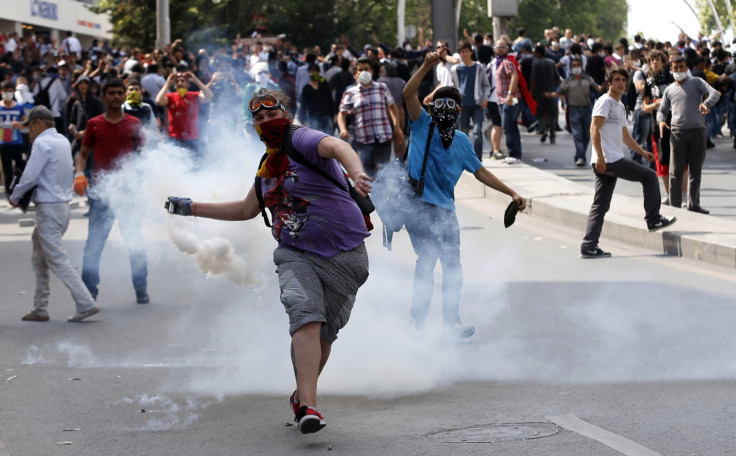The Turkish Protests: How To Sound Intelligent At The Watercooler

Three years after the beginning of the Arab Spring, there is another series of mass protests in a predominantly Muslim country -- albeit one that isn't Arab. While Turkey is and has been a major player on the world stage, it’s understandable if you haven’t been able to squeeze in your usual required Turkey reading between what’s been happening in Syria, Bangladesh, China, and basically everywhere else. Even if you couldn’t locate Istanbul on a map, here are five good facts to know about the situation in Turkey, leading up to the recent public outbursts.
Democracy: It is considered one of the few legitimate, moderate and stable democracies in the Middle East -- although it’s often debated whether Turkey, with a foot in Europe, is really a Mideast country. And in fact whether it is truly a democracy or not is at the core of the clashes right now. Many Turks think current Prime Minister Recep Tayyip Erdoğan and his ruling Justice and Development Party, or AKP, is too religious, too Islamist, and subtly trying to steerTurkey down a less secular path.
Coups: There have been four incidents in the past when the military has overthrown governments that were deemed a threat to Turkey’s official state ideology of secularism, or Kemalism after the founder of the modern Turkish state, Kemala Atatürk. It’s up for speculation as to whether the military will attempt anything this time -- or even if it could, considering how much Erdoğan has tamed it.
The economy: Turkey has one of the fastest-growing economies in the world, and one of the largest (18th-biggest GDP according to the United Nations). According to the Organization for Economic Co-operation and Development, Turkey’s economy showed enormous resilience during the global downturn in 2008 and 2009. From 2002 to 2012, Turkey had one of the fastest-growing GDPs in the world, ahead of Brazil, Mexico and the U.S., and 2010 and 2011 saw an economic expansion of 9 percent, a pace considered “breakneck” by many economists. In 2013, however, there has been a slowdown, due in part to the European debt crisis, and also due to a drop in domestic demand for goods and services.
Freedom of the press: Turkey has more journalists in jail than Iran and China. According to the Committee to Protect Journalists, as of August 1, 2012, 61 Turkish journalists were in jail. According to Turkey Press Freedom, 42 journalists have been killed in the last 20 years. The Internet is also censored. As a result, coverage of the protests has been in the hands of social media and citizen journalists.
The European Union: Turkey has been lobbying for EU membership since 1987, when it officially filed to accede as a full member. It’s been an associate member of the EU’s predecessors since 1963. Much of the controversy over Turkey’s potential membership lies, at least according to the EU, in Turkey’s history of human rights violations. But from some Turkish political quarters, the view is that Europe does not want a populous, majority-Muslim country that would shift the axis of the Union far to the East.
Syria: Turkey has a serious crisis on its southern border, and as a result has been one of the most pro-interventionist countries. It has also taken in one of the largest groups of Syrian refugees (more than 370,000, the U.N. says), and while it has received some monetary aid, the refugees are an undeniable economic burden.
This is not the Turkish Spring: Some knee-jerk political commentators have likened the protests in Turkey to those in Tunisia, Libya, Egypt and other countries engulfed in the Arab Spring (despite the fact that Turkey isn't Arabic). But many of those in the Arab streets were poor, religious Muslims hoping to see more of their faith enshrined in the law of the land. In Turkey, economist Emre Deliveli said, the demonstrators are educated, middle-class young people trying to preserve the country’s traditional secularism in the face of a government whose laws appear increasingly pious. “One of the main differences between the Turkish and Arab demonstrations is that the Arab ones all started from the lower classes,” he said in a phone interview. “What is going on in Turkey is more of a middle-class uprising. It’s urban versus rural.” He added: “Half the country loves [Erdoğan], half the country is vehemently opposed to him.”
© Copyright IBTimes 2024. All rights reserved.






















